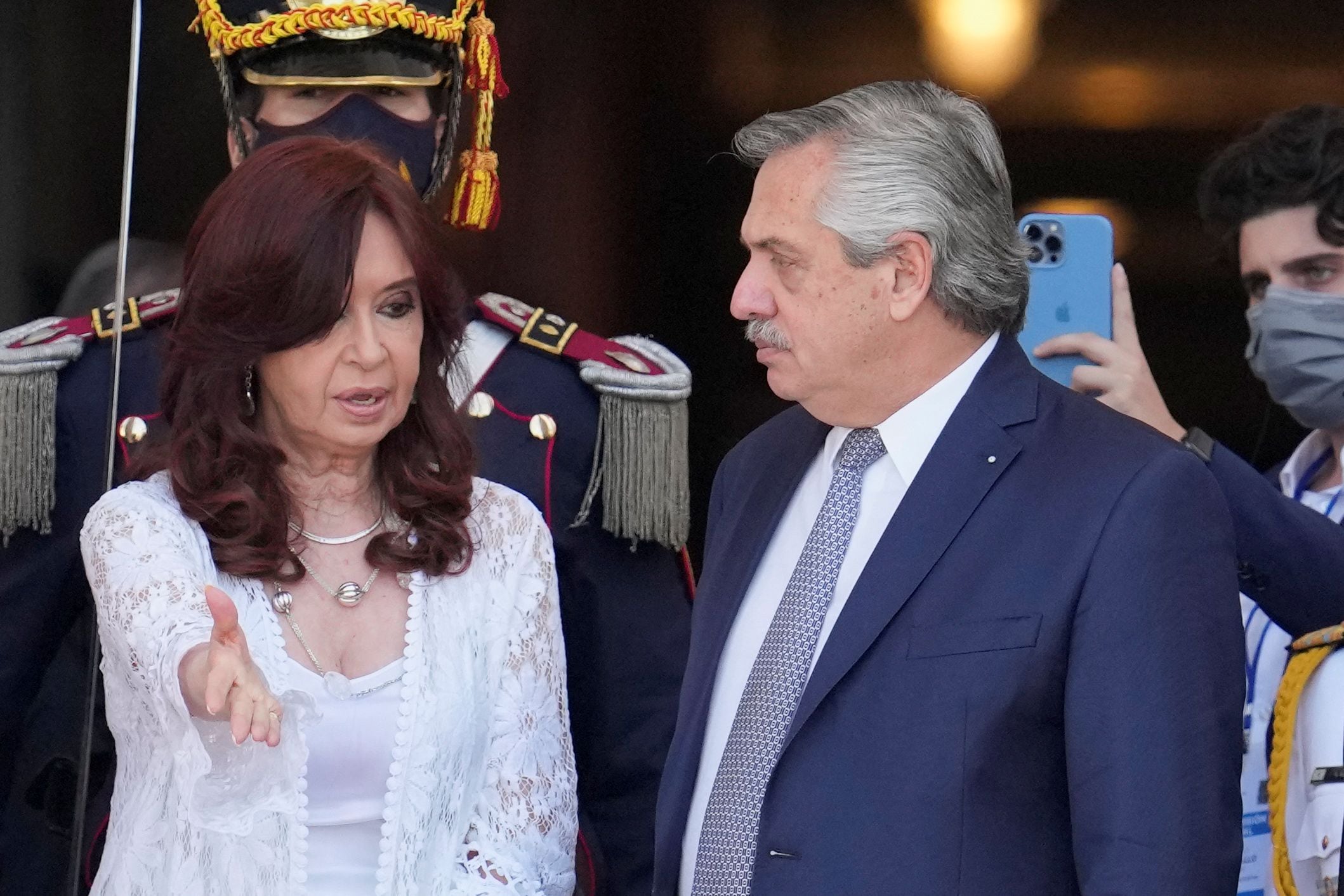
After signing a few days ago the one requested by which cultural, political and communication referents stressed the importance of keeping the Frente de Todos bloc together to prevent the return of neoliberalism to Argentina and Latin America, it drew attention to the fact that María Seoane, a renowned journalist and writer related to the ruling party, yesterday endorsed the communiqué entitled “Unity of the popular camp: moderation or people”, under which different intellectuals linked to hard Kirchnerism backed Vice President Cristina Kirchner and pointed against President Alberto Fernández. However, she herself today took care of clearing all doubts about her position and admitted that she agrees “with things that the two letters say”.
“In each of the letters, political dilemmas are posed, in the face of such a complex reality we have in Argentina,” Seoane, former director of Radio Nacional, said during a report for Radio Con Vos.
In the same vein, Seoane considered that it is necessary to “make much more drastic decisions regarding the great holders of wealth and those responsible for the looting that we live in Argentina”, referring to the country's debt to the International Monetary Fund (IMF), which he described as” unpayable” and “essentially political”.
Faced with this scenario, the Kirchnerist intellectual explained why she signed the two letters issued by different government sectors: “I did it on purpose, because I agree with things that the two letters say”.
However, during the report Seoane differentiated the roles played today by Cristina Kirchner and Alberto Fernández. “I think there is a political leadership in the Front of All that Cristina is there and the president has a role and has been elected by the majority of Argentines,” he analyzed.
Following the strong criticism received by President Fernández for the agreement reached with the IMF, intellectuals identified with albertism issued a document on March 13 entitled “The unity of the popular camp in difficult times”, in which the signatories stressed the importance of keeping together the bloc of the Frente de Todos to prevent the right wing from reruling the country.
“A question calls us and requires us to find the essential answers: What is the best strategy to confront at the current stage the forces of the right, the ultra-right and neoliberalism that are active and have a strong capacity for social interpellation?” , presents the document signed by Lila Pastoriza, Claudio Marín, Cecilia Todesca Bocco, Roberto Follari, Ana Castellani - Jaime Sorín, Elina Malamud, Fernando Peirano, Sabina Frederic, Pablo Semán, Nahuel Sosa, Ricardo Rouvier, Lucia Perl, Claudio Ingerflom, Adrián Cannellotto and the aforementioned Seoane, among others.
In contrast, yesterday there was another request in which academics and cultural referents identified with the Vice-President came out to respond to the letter issued by the sector most closely linked to the President. Under the title “Unity of the popular camp: moderation or people”, they criticized the national president and affirmed that “the 'Unity' of the Front of All was already broken in November 2021.” They also emphasized that when “the government itself generates expectations and the disappointment of expectations, it is the cruel moment where moderation turns into powerlessness.”

The communiqué, which is also signed by Seoane, states in one of the first paragraphs: “Welcome the exchange of ideas and the explication of positions and nuances on how to move forward in the construction of the political, economic, cultural, social and Latin American program. Public debate is a strength of every national and popular political project. It's never a weakness.” They also argued that “unity is not maintained because it is named”, but that “it is maintained if the policies that gave rise to it continue to be active”, alluding to the repeated demand for “unity” by Albertism.
“Government policy has reached its most tragic point: the preparation of ad scenarios where no announcements are made. It is the failed practice of anticipating policies that do not materialize: the government itself generates expectations and the disappointment of expectations. It is the cruel moment where moderation turns into helplessness. They decide to lower the intensity of politics and, as an unwanted effect, they suppress politics. They propose to go slowly but end up motionless. They pretend to speak softly but become inaudible. Everything that is moderate ends up being weak and without transformative capacity. It is necessary to remember: Governments are not evaluated by their intentions, but by their effectiveness,” said hard Kirchnerism in one of the strongest fragments of the letter, after the President announced that last Friday was beginning “the war on inflation”.
In the midst of this crossfire, Seoane, who supported both positions, said: “The leaders of the Front of All must make that coalition work.”
KEEP READING:
Últimas Noticias
Debanhi Escobar: they secured the motel where she was found lifeless in a cistern
Members of the Specialized Prosecutor's Office in Nuevo León secured the Nueva Castilla Motel as part of the investigations into the case

The oldest person in the world died at the age of 119
Kane Tanaka lived in Japan. She was born six months earlier than George Orwell, the same year that the Wright brothers first flew, and Marie Curie became the first woman to win a Nobel Prize

Macabre find in CDMX: they left a body bagged and tied in a taxi
The body was left in the back seats of the car. It was covered with black bags and tied with industrial tape
The eagles of America will face Manchester City in a duel of legends. Here are the details
The top Mexican football champion will play a match with Pep Guardiola's squad in the Lone Star Cup

Why is it good to bring dogs out to know the world when they are puppies
A so-called protection against the spread of diseases threatens the integral development of dogs




